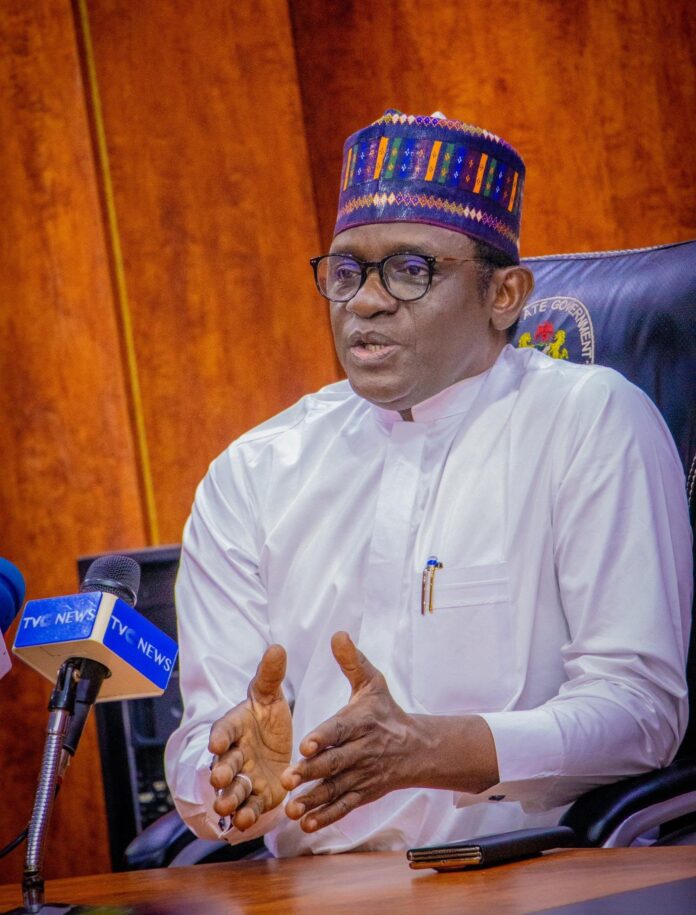When the National Bureau of Statistics (NBS) released its July 2025 Food Price Watch, many Nigerians were stunned. Across the country, the cost of staples such as rice, beans, maize, and yam had risen sharply, further tightening the grip of food inflation on households. Yet, tucked away in the numbers was an extraordinary revelation: Yobe State, under the leadership of Governor Mai Mala Buni, emerged as the most affordable state to live in Nigeria.
At a time when the World Bank warns that rising food inflation could push millions of Nigerians deeper into poverty, the Yobe story is one of resilience, foresight, and homegrown solutions. According to NBS, average food prices in Yobe remain well below the national average, making it a haven for families struggling to cope with the high cost of living. Analysts say this is no accident—it is the direct outcome of Governor Buni’s bold agricultural reforms and strategic investments in food security.
When Governor Buni assumed office in 2019, Yobe was often described as a state battling insecurity, poor infrastructure, and a fragile agricultural system. Yet, Buni saw an opportunity where others saw despair. Agriculture, the backbone of Yobe’s rural economy, became the central pillar of his governance agenda.
Through the Yobe Agricultural Revolution Programme, the state rolled out a wide range of policies: distribution of improved seedlings, subsidized fertilizers, provision of mechanized farming equipment, and massive support for irrigation schemes. By partnering with local cooperatives and farmer groups, the programme empowered thousands of smallholder farmers, who form over 70% of the state’s population.
One key success has been in rice and wheat farming. Through collaboration with the Lake Chad Research Institute and international partners, farmers in Bade, Jakusko, and Geidam now produce higher yields with shorter growing cycles. Yobe rice, once limited to local consumption, is gradually finding markets in neighboring states.
Perhaps the most transformative step under Buni’s agricultural plan is the investment in irrigation farming. Unlike many states that rely solely on seasonal rains, Yobe tapped into its rich water bodies—particularly the Komadugu-Yobe Basin—to enable year-round cultivation. Solar-powered pumps, canals, and small dams have been constructed to support dry-season farming, ensuring food availability even when rainfall is scarce.
This approach has kept market prices stable. While tomatoes in Lagos and Abuja hit record highs earlier this year, Yobe markets, fed by irrigation farms in Nguru and Gashua, sold them at half the price.
Food inflation is a nationwide problem, driven by insecurity in farming belts, poor storage, rising fuel prices, and import dependency. Yet, Yobe has bucked the trend. Farmers’ cooperatives in Damaturu and Potiskum say the state’s consistent support has enabled them to increase production, thereby keeping food supplies steady.
“Unlike before, we now get improved seeds and fertilizers on time. We no longer wait for middlemen,” says Malam Ibrahim Musa, a farmer in Potiskum. “The governor has made farming profitable again, and our people can afford food despite inflation elsewhere.”
This has created a ripple effect. With lower food costs, families in Yobe spend less of their income on feeding, freeing up resources for education, healthcare, and small businesses. Traders also report increased activity as buyers from neighboring states troop to Yobe’s markets in search of cheaper produce.
Experts believe that Governor Buni’s agricultural model holds valuable lessons for other states. Unlike ad-hoc interventions, Yobe’s programme is built on consistency and inclusiveness. Farmers are treated as partners, not beneficiaries. Women and youth are deliberately included in schemes such as poultry farming, fishery clusters, and vegetable production.
The result is a diversified food system that cushions against shocks. Even when floods hit parts of northern Nigeria last year, Yobe’s irrigation clusters helped stabilize food supply. The state’s grain reserves, revitalized under Buni, also played a key role in preventing shortages.
Agriculture does not thrive in isolation. Governor Buni has coupled food production with massive infrastructure upgrades, particularly rural roads that connect farms to markets. For instance, the completion of the Damaturu–Buni Yadi road has boosted access to southern Yobe farms, cutting transport costs and reducing post-harvest losses.
In addition, new markets in Damaturu, Nguru, and Machina provide structured platforms for trading, storage, and price regulation. Cold storage facilities for onions and vegetables are helping farmers preserve produce, preventing the glut that often drives prices down artificially.
For many Yobe residents, Buni’s foresight in prioritizing agriculture long before Nigeria’s inflation crisis deepened has proven invaluable. While states scramble for food palliatives and subsidies, Yobe stands out as an example of proactive leadership.
“Governor Buni has shown that food security is the best form of social welfare,” notes Dr. Aisha Goni, an agricultural economist at Yobe State University. “By keeping food prices low, he has shielded families from the worst effects of inflation. Other states should learn from this model.”
Despite the achievements, challenges remain. Climate change continues to threaten rain-fed farming, while pockets of insecurity still disrupt activities in some communities. But the foundation laid under Buni’s agricultural programme gives hope that Yobe can withstand these shocks.
The governor has already announced plans to expand irrigation schemes, invest in climate-smart agriculture, and attract private sector investors into agro-processing. If these plans succeed, Yobe could move from being Nigeria’s most affordable state to one of its biggest food exporters.
Conclusion
In an era where food inflation dominates headlines and Nigerians struggle with rising costs of living, Yobe State offers a story of resilience and innovation. Thanks to Governor Mai Mala Buni’s agricultural programme, the state is not only feeding itself but also keeping food affordable for millions.
The NBS ranking is more than a statistical achievement—it is a testament to the power of visionary leadership and a reminder that Nigeria’s food crisis can be solved with the right policies. For now, Yobe stands tall as a beacon of affordability and food security in a nation searching for answers.




